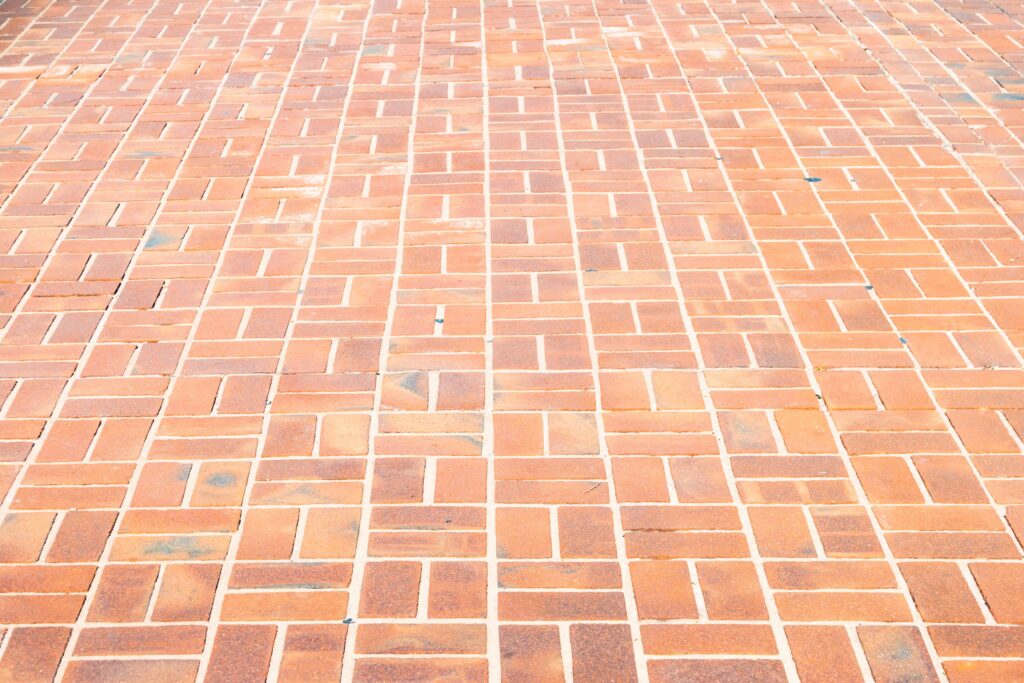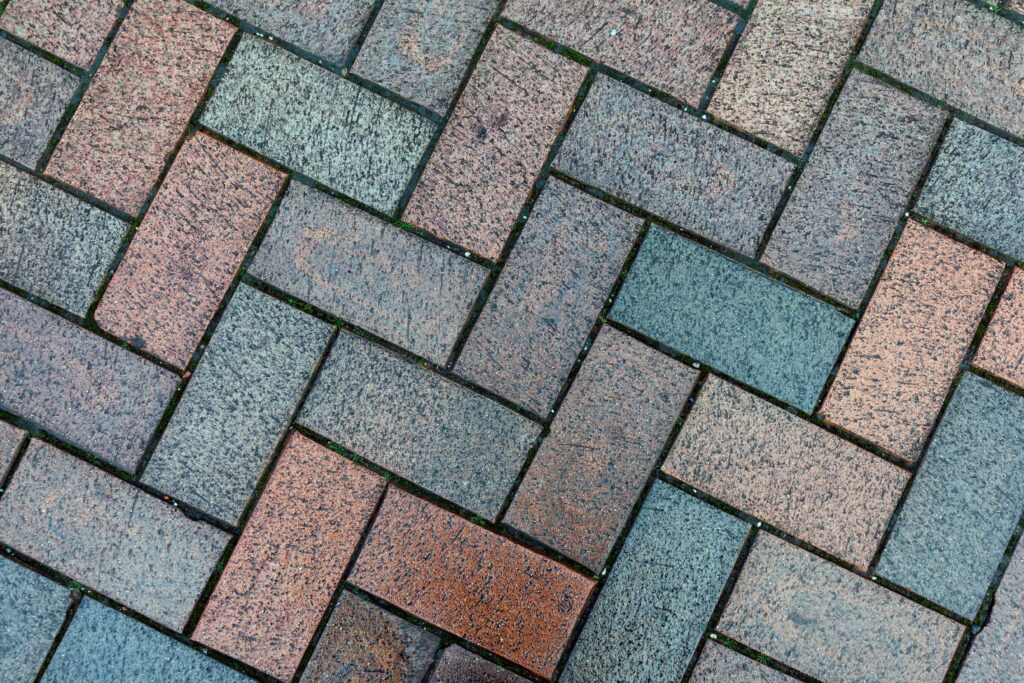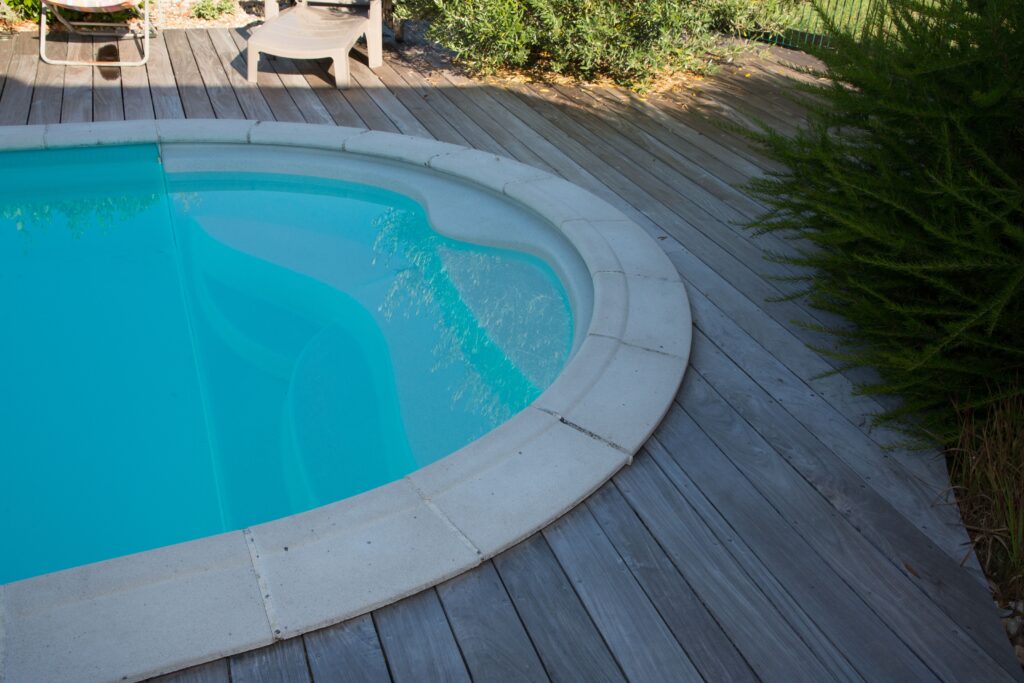5 Tips on How to Choose Pool Pavers and Coping
While most pool owners’ primary focus is typically on the pool itself, it pays to spend a little time thinking about the pool pavers and coping.
In terms of aesthetics, your pool pavers and coping (or your pool deck) will determine how well your pool blends into the surrounding landscape. The right decking can make a huge difference in the appearance of your pool. However, there is an even more important reason to pay attention to the pavers and coping around your pool, as well as to invest in quality pool deck construction if you haven’t already. If the right materials are used in its construction, pool decking can vastly improve the safety of your pool by providing a secure walking area to keep swimmers safe.
The one question that the team at Fujiwa Tiles gets asked the most is, “What is the best material for my pool coping and pool area?”
With almost four decades of experience working with swimming pool builders, contractors, architects, and designers across the States, we believe we are the right people to answer it. To that end, we will help you select a material that scores highly on both form and function and is also safe for your pool and lifestyle.
Without further ado, here are our five factors to keep in mind when choosing pool pavers and coping for your pool project:
1. Moisture-Resistance
Pool pavers and coping are unique in that they are used differently than most other surfaces. Because of their proximity to the swimming pool, these surfaces are constantly exposed to water, so water resistance should always be considered when choosing a material.
Choosing a “cheap” material is not a good idea. The last thing you want is for your pool decking to begin showing signs of damage because of pool water exposure or for you to incur additional costs due to the need to reapply a sealant regularly to keep it in excellent condition. Poured concrete, concrete pavers, brick, stone tile, and even good quality natural or composite wood are some of the best moisture-resistant materials out there.
2. Anti-Slip
The combination of moisture and barefooted swimmers increases the risk of slips and falls. This means you should make a concerted effort to find a high-quality material for your pool decking that will provide adequate traction while reducing the potential for injury.
Stone, for example, provides natural friction and is an excellent way to ensure that people walking barefoot around your pool are less likely to slip and fall, even if your pool pavers and coping are exposed to high levels of water. Surface coatings such as epoxy or a combination of polymer resins, sand, and cement can also help ensure that your pool decking has a water-resistant and non-slip surface.
3. Less Heat
5 Tips on How to Choose Pool Pavers and Coping
Another factor to consider is that pool decking can and will retain heat. While it is not always dangerous, it can be extremely uncomfortable, particularly during the hot summer months in Dallas, TX. This is yet another reason why choosing the right material for your pool pavers and coping is so important.
Furthermore, if walking on your current pool decking feels like walking on hot coals in the summer heat, a simple remodeling project will make it much more comfortable.
Stone tile can be placed on top of existing concrete pool decking, for example. Choose unglazed stone tile in lighter colors that will not absorb heat for extra safety. Woods such as cedar, redwood, or teak are also strong contenders because they are resistant to water damage and insect damage requiring less maintenance in the long run.
4. Surrounding Landscape
Pool pavers and coping are essential in connecting your pool to its surroundings. One thing to keep in mind during the pool deck construction process is how you can use your new pool decking to integrate your new pool into the landscape.
Stone tile, for example, is a great way to tie a pool with the surrounding landscape because it has a more natural aesthetic, particularly when combined with natural-looking stones such as travertine, limestone, and sandstone. Meanwhile, those with more traditional homes will often find that brick is a better choice because it has a more classic appearance.
5. Foundation
With all of the above being stated, one of the most important things to keep in mind is that no pool pavers and coping construction projects should ever start without first taking a close look at the foundation. A thorough foundation inspection confirms that the underpinnings of the decking are in great condition before pressing ahead, ensuring it can stand up to a great deal of future use without cracking, crumbling, or collapsing.
Different types of pool decking require different types of foundations. However, in pretty much all cases, this foundation must be sound and stable. Furthermore, when laying a foundation, consider whether a drainage channel will be required, as may be the case if the pool area is located on a slope. This will help to keep the pool from flooding during a storm. Pool decking may also require a slope in some cases to allow water to drain away, such as when constructed with concrete, tile, brick, or pavers.
Choose Fujiwa Tiles For Pool Pavers and Coping
5 Tips on How to Choose Pool Pavers and Coping
Pool deck construction can be challenging, but once you are lounging in your pool in the summer sun, the effort is well worth it.
Fujiwa Tiles is a leading importer and national wholesale distributor of high-quality tile and granite coping, as well as decking for pool, spa, and outdoor construction and renovations. We can help you choose high-quality materials for your pool pavers and coping that will last for many years.
If you would like to learn more about how our team can assist you with your pool decking construction or remodeling project, please fill out an online form, and a representative will contact you as soon as possible.
FAQs
- What are the best materials for pool pavers and coping?
- Materials such as stone, concrete, brick, and quality wood are popular choices due to their durability and suitability for poolside environments.
- How can I ensure safety around my pool area?
- Opt for materials with anti-slip properties and conduct regular maintenance to prevent hazards.
- Can I integrate my pool deck with the surrounding landscape?
- Yes, choose materials that complement your backyard design and enhance the overall aesthetic appeal.
- What should I consider before starting a pool deck construction project?
- Conduct a thorough foundation inspection and consider factors such as water resistance, heat retention, and landscape integration.
- How can Fujiwa Tiles assist with my pool decking project?
- Fujiwa Tiles offers high-quality materials and expert guidance to ensure your pool pavers and coping meet both aesthetic and functional requirements.



